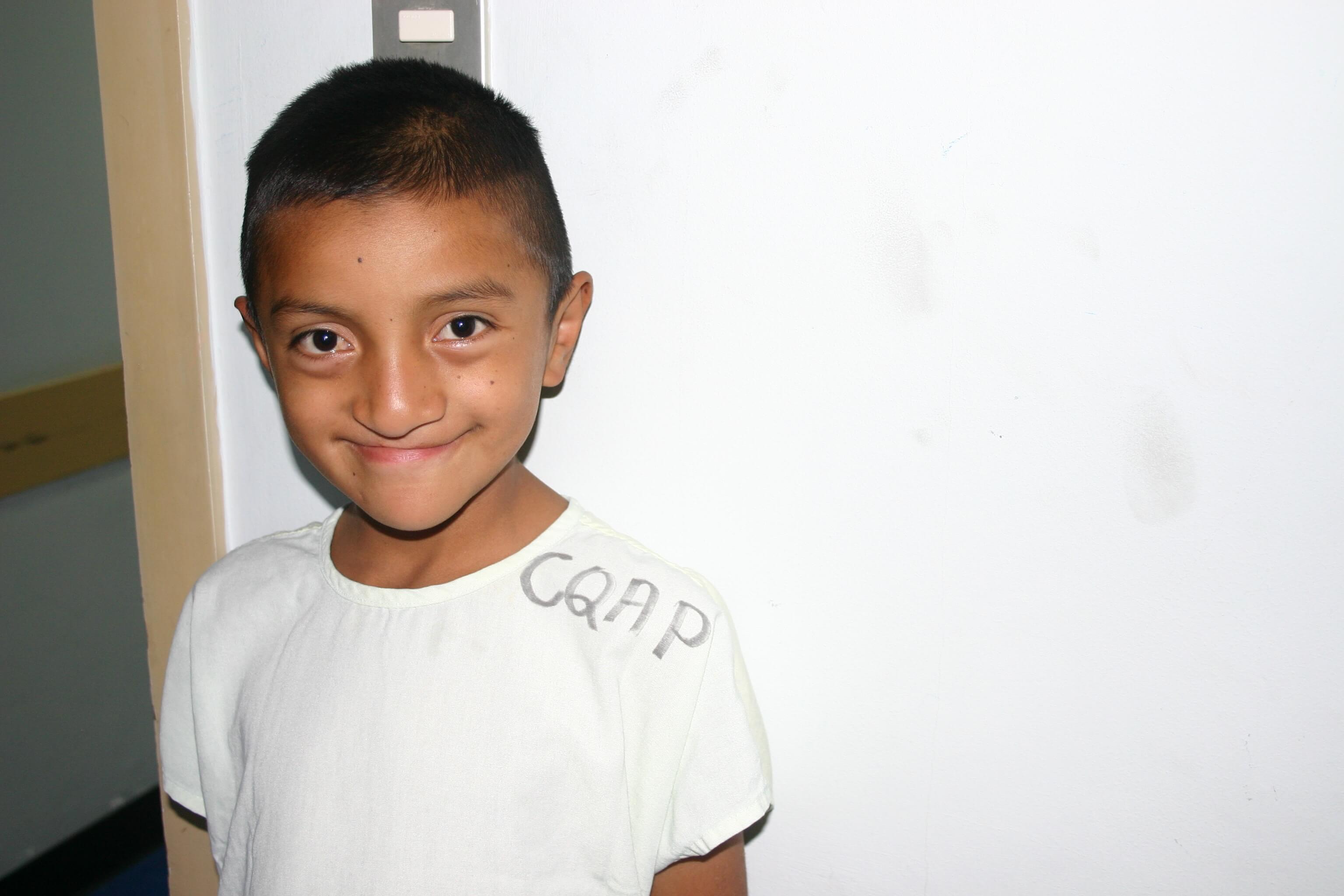Day one of surgery has started off with a bang! Our team began work at 6:30 am this morning, and as I write this at 6:00 pm the last surgery has just begun. Everyone has been upbeat and energized throughout the day, regardless of the multiple challenges we have faced-typical for the first day of work in a new setting.
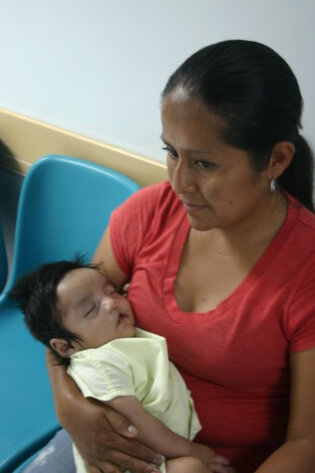
Many of the children’s mothers waited outside of the operating suite nervously. Emotions were high amongst the families today, luckily our team and Guatemalan translators were quick to comfort and explain what the day would look like.
The vast majority of the children we are operating on have cleft lips or palates, which is a malformation of these areas that occurs during fetal development. The cause of these types of clefts are still somewhat unknown. Most experts agree that the causes are multifactorial and may include a genetic predisposition as well as environmental issues such as drug and alcohol use, smoking, maternal illness, infections, or lack of Vitamin B, also known as folic acid.
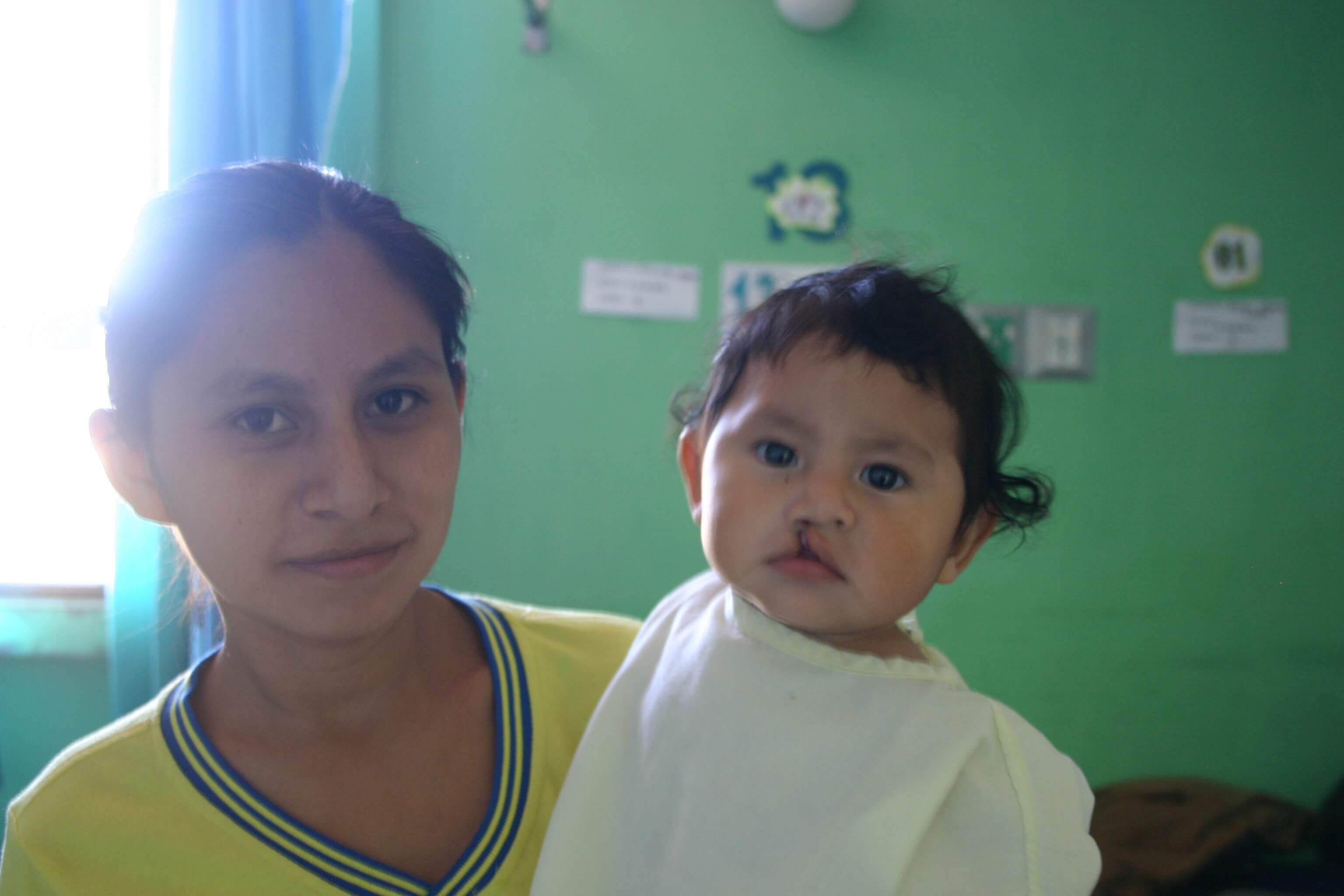
Pictured above is Abias who is awaiting surgery to repair his right cleft lip .
As of 2015 the global prevalence of Orofacial Clefts (OFCs) is one in 700 live births or 1.56 per 1,000 live births in Northern America. One study conducted in northern Guatemala in 2015 found that the prevalence of OFCs is slightly under two per 1,000 live births. This study concluded that the indigenous communities in north-central Guatemala might have a relatively high cleft lip prevalence rate compared with the global average.
These numbers may seem unimpressive to the untrained eye, but given the comparison between Guatemala and the Global statistics there is a clear discrepancy. The children in the community we are serving on this mission are in great need of surgical services in order to repair these OFCs. Another factor that contributes to the gravity of our work is that specialists who perform these sometimes difficult surgeries are less abundant here and the population that needs the surgeries are often of low economic status and living in rural or remote areas of the country where surgical services are sparse.
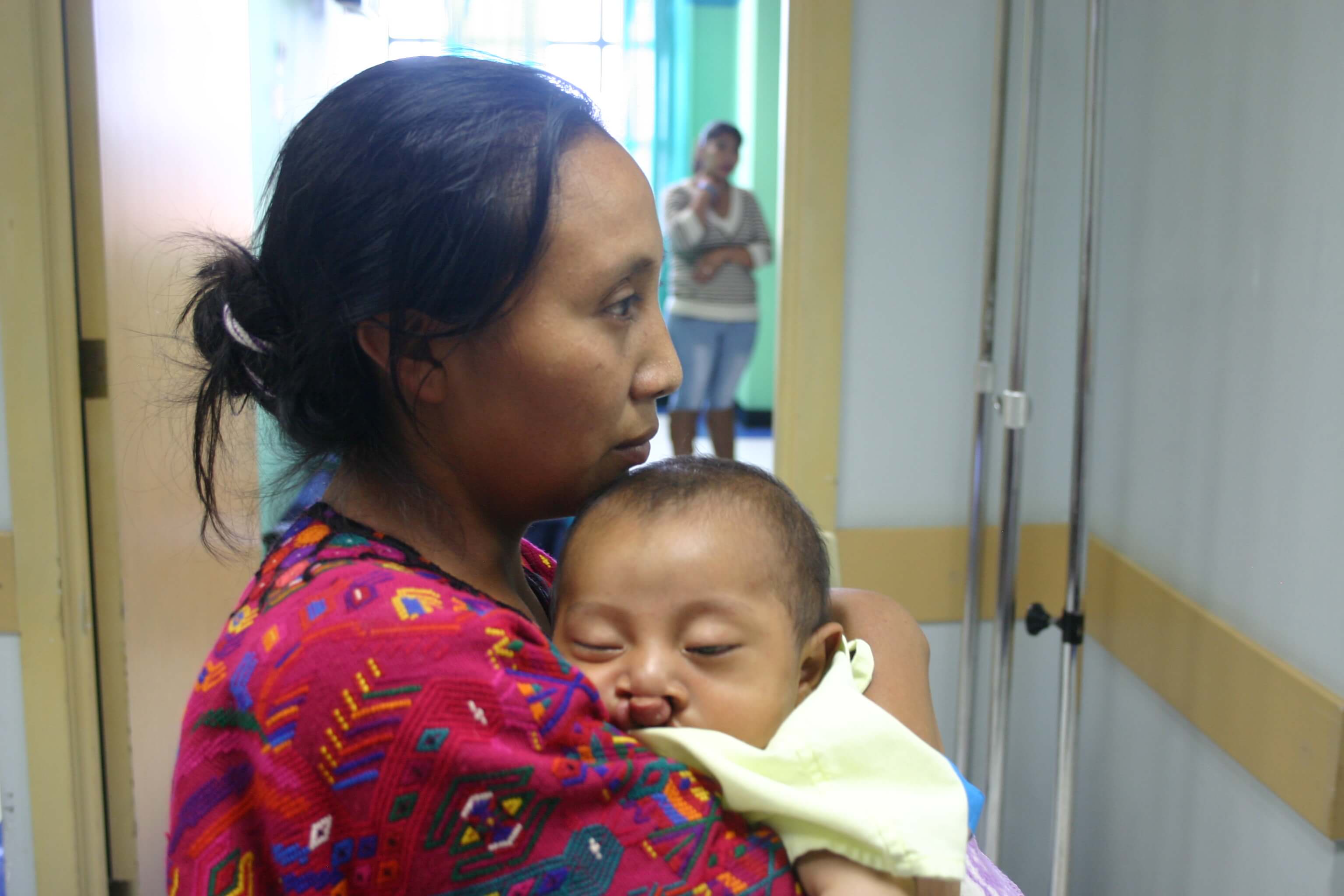
Pictured above: An indigenous woman who traveled with her son Kevin (with bilateral cleft lip and palate) for 7 hours to get here.
Below: Kevin during his first minor procedure for the week. He will remain in the city with his family to be monitored until his bilateral cleft lip is repaired.
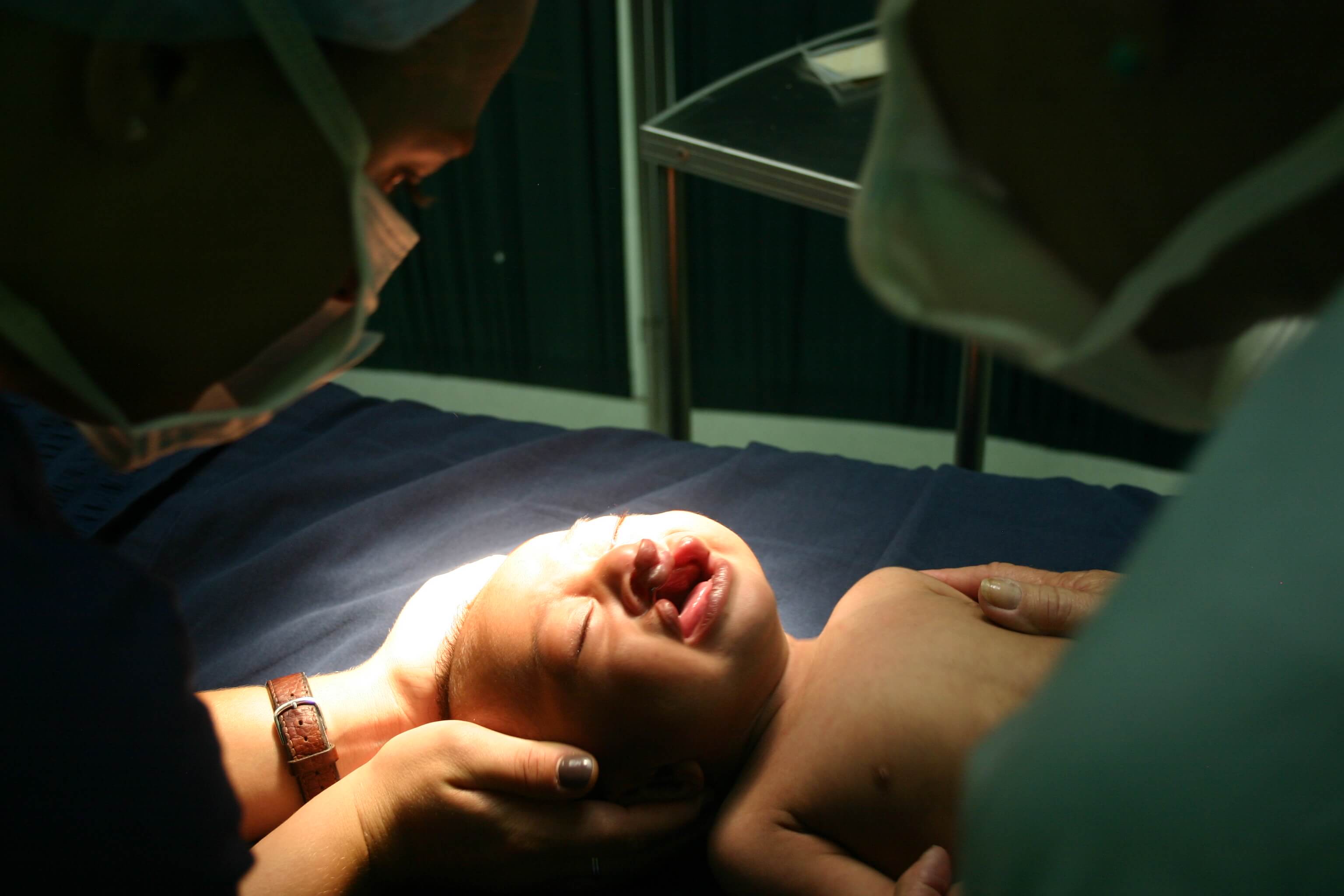
Challenges still remain for the families that we are helping. Many have to travel great distances, sometimes up to 7 hours in order to come to our hospital. The financial burden of traveling, taking time away from work, and leaving family members at home prohibit some from being able to seek care.
Given the opportunity to have surgery to reconstruct cleft lips and/or palates many children tend to feel less ostracized in their communities. Too often children with these types of malformations do not attend school, receive jobs or find partners in their communities. Beyond the social implications people with OFCs often have difficulty eating, breathing, speaking and hearing, all of which can be drastically improved with surgery and speech therapy.
As the day winds down the Rotaplast team is ready for some rest before our next day of surgeries.




